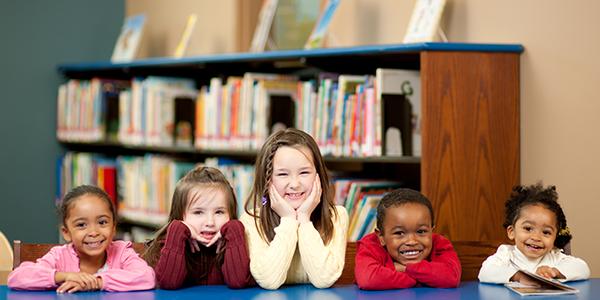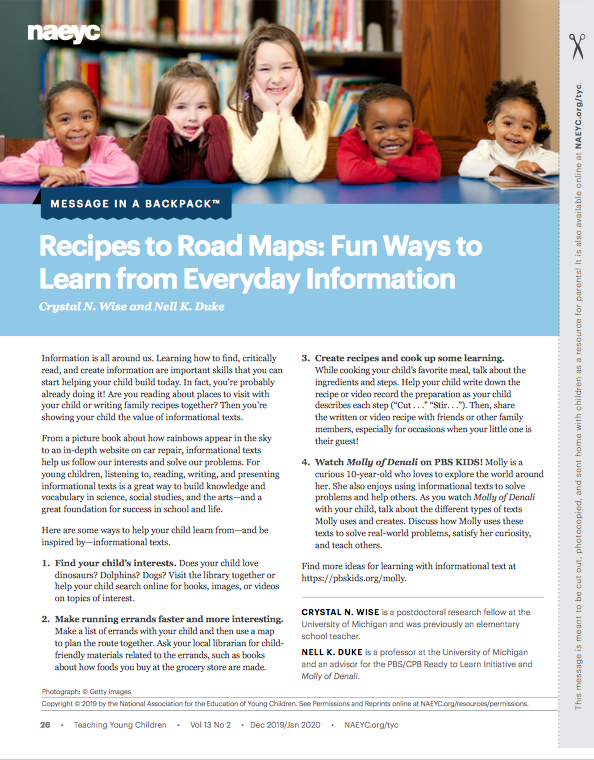Message in a Backpack ™ Recipes to Road Maps: Fun Ways to Learn from Everyday Information

You are here
Information is all around us. Learning how to find, critically read, and create information are important skills that you can start helping your child build today. In fact, you’re probably already doing it! Are you reading about places to visit with your child or writing family recipes together? Then you’re showing your child the value of informational texts.
From a picture book about how rainbows appear in the sky to an in-depth website on car repair, informational texts help us follow our interests and solve our problems. For young children, listening to, reading, writing, and presenting informational texts is a great way to build knowledge and vocabulary in science, social studies, and the arts—and a great foundation for success in school and life.
Here are some ways to help your child learn from—and be inspired by—informational texts.
- Find your child’s interests. Does your child love dinosaurs? Dolphins? Dogs? Visit the library together or help your child search online for books, images, or videos on topics of interest.
- Make running errands faster and more interesting. Make a list of errands with your child and then use a map to plan the route together. Ask your local librarian for child-friendly materials related to the errands, such as books about how foods you buy at the grocery store are made.
- Create recipes and cook up some learning. While cooking your child’s favorite meal, talk about the ingredients and steps. Help your child write down the recipe or video record the preparation as your child describes each step (“Cut . . .” “Stir. . .”). Then, share the written or video recipe with friends or other family members, especially for occasions when your little one is their guest!
- Watch Molly of Denali on PBS KIDS! Molly is a curious 10-year-old who loves to explore the world around her. She also enjoys using informational texts to solve problems and help others. As you watch Molly of Denali with your child, talk about the different types of texts Molly uses and creates. Discuss how Molly uses these texts to solve real-world problems, satisfy her curiosity, and teach others.
Find more ideas for learning with informational text at https://pbskids.org/molly.
This message is meant to be cut out, photocopied, and sent home with children as a resource for parents!
Photograph: © Getty Images
Crystal N. Wise is an assistant professor in literacy education in the Department of Curriculum and Instruction at the University of Minnesota, Twin Cities. Her work primarily focuses on early literacy instruction. She is a former kindergarten and second grade teacher. [email protected]
Nell K. Duke, EdD, is professor in literacy, language, and culture in the School of Education and the combined program in education and psychology at the University of Michigan. As of September 2022, Dr. Duke serves as the executive director of the Center for Early Literacy Success at Stand for Children (www.stand.org). She earned her bachelor’s degree from Swarthmore College and her master’s and doctoral degrees from Harvard University. Her work focuses on early literacy development, particularly among children living in economic poverty. Dr. Duke has received the International Literacy Association’s William S. Gray Citation of Merit for outstanding contributions to research, theory, practice, and policy. Her website is www.nellkduke.org.

